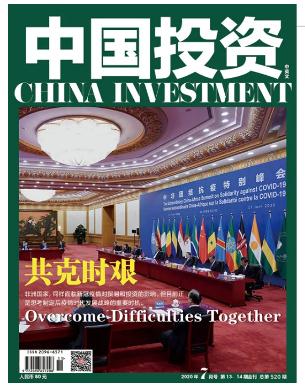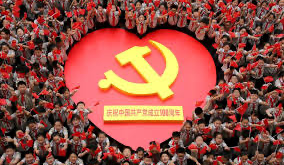2020 marks the 50th year of the establishment of bilateral relations between the Federal Democratic Republic of Ethiopia and the People’s Republic of China. The theme of the commemoration is : China –Ethiopia at 50: Ancient Civilizations and New Partners, is aimed at looking back to the last fifty years and envision new cooperation to the coming decades. The half a century old bilateral relations between the countries is an example of trust and friendship and illustration of a successful South-South cooperation. This relation has been reinvigorated in the past two decades with the formation of the Forum for China Africa Cooperation, where Ethiopia played and continues to play a very constructive role. Today, China has become Ethiopia’s main trade partner and major source of Foreign Direct Investment and development finance.
Ethiopia: A Country in Transformation.
According to data from World Bank, in 2000, Ethiopia, the second-most populous country in Africa, was the third poorest country in the world. Its annual GDP per capita was only about $620 (in 2011 dollars). More than 50% of the population lived below the global poverty line, one of the highest poverty rates in the world. The situation has changed a lot since then. According to World Bank Estimates from 2000 to 2018, Ethiopia was the third fastest growing country of 10 million or more people in the world, as measured by GDP per capita. This gain has been relatively evenly shared. The country’s poverty rate fell to 31% by 2015 and stands at around 25% now. Life expectancy rose from about 52 in 2000 to 66 in 2017, and infant mortality dropped by more than halff over that period.
By 2050, it is estimated the country’s population will grow to over 205 million people, from around 115 million today, making it among the fastest growing and large countries in terms of population, with dominant young and productive sector. In the 2000s, about half of Ethiopia’s growth was due to improvements in productivity per worker; the remaining growth was a result of increases in the share of the employed population and capital investments.
Ethiopia and SDGs
In addition to this, Ethiopia reached important milestones set globally in the Millennium Development Goals. Ethiopia is globally recognized for having taken ownership of the MDGs agenda and integrating them into successive national development plans from the Sustainable Development Poverty Reduction Programme (2002/03-2004/05) to the Growth and Transformation Plan (GTP) (2010/11-2014/15). Ethiopia has successfully achieved six of the eight MDGs. Today Ethiopia celebrates the fact that the proportion of people below the poverty line has been halved; the prevalence of hunger and undernourishment has been reduced; access to education has expanded; the gap in enrolment between boys and girls has narrowed; under five mortality has been reduced by two-thirds; and similar progress was recorded in reducing HIV/AIDs, malaria, tuberculosis and other diseases.
A Climate Resilient Green Economy Strategy has been formulated and the Government has set itself a bold vision of becoming middle-income carbon-neutral economy by 2025.The MDGs were implemented through effective government leadership and coordination of all stakeholders in an organized and structured manner throughout the country. Lessons have also been drawn from the experience of implementing the MDGs and indeed, Ethiopia has made significant contributions by sharing these lessons as inputs to the preparation of the 2030 Global Agenda for Sustainable Development.
Ethiopia has been pursuing pro-poor policies, implementing development plans and programs within global development agendas such as the MDGs, the Brussels Program of Action and its successor the Istanbul Program of Action for Least Developed Countries have been mainstreamed with remarkable achievements in economic growth, social development and environmental management. This, in turn has, helped in gaining replicable development experiences over the last decade and half. Informed by these experiences and having recognized future opportunities, Ethiopia has accepted and endorsed the 2030 Agenda for Sustainable Development with national commitments and ownership to implement the 2030 Agenda and its Sustainable Development Goals (SDGs) as integral part of its national development framework. Accordingly, with full sense of national ownership, implementation of SDGs has been and is well in progress in Ethiopia. Based on the successes of these government led initiatives, Ethiopia has formulated and implemented its Second Growth and Transformation Plan for the 2016-2020 and is now in the process of inaugurating at ten year plan for economic development. This plan is expected to build upon the important gains registered in all economic spheres and identifies new sources growth in all the sub-sectors of the economy: agriculture, industry and services.
Ethio-China bilateral relations
Formal diplomatic relations between Ethiopia and the People’s Republic of China (PRC) were established in 1970. The 50 years journey of Ethiopia and China could be divided into three periods. The first, 1970-1974, was the early stages and the visit of the Emperor in 1971 to China, merely a year after the formal establishment of the ties, was a symbolic event of the time. Chairman Mao Zedong welcomed the Emperor warmly and gave a banquet in honour of the visiting delegation. The newly established relations faced some challenges due to the change of government in Ethiopia following the 1974 revolution. From 1975 to 1991, Ethiopia’s foreign policy was anchored on ideological outlook and mainly guided by socialist thoughts. However, from 1991 onward, the relationship between the two countries witnessed a multitude of cooperation and partnership. Guided by the principles of mutual interest and benefit and non-interference in the internal affairs of each other, the relationship steadily moved to one of the highest levels of partnership: the Comprehensive Strategic and Cooperative Partnership. Also guided by the Forum for China Africa Cooperation (FOCAC) and the Belt and Road Initiative (BRI), the cooperation flourished as one of its kind in the African continent.
Ethiopia: Bright Spot for FDI in Africa
This conducive environment created the impetus for China’s companies to involve in important infrastructure development and investment activities in Ethiopia. As Ethiopia has developed a comprehensive industrial hubs strategy based on systematic learning from countries such as China, Chinese companies have taken the opportunities fully.
A testament to that, FDI almost quadrupled to USD 4.2 billion in 2016/17 from USD 1.1 billion in 2011/12. Manufacturing drew in more than 80 percent of FDI during this period. Nowadays, about two-thirds of all Chinese firms in Ethiopia were engaged in the manufacturing sector, twice the average of Chinese firms’ engagement in Africa.
In terms of factor endowments, Ethiopia has a relatively large, youthful population of about 110 million people and comparatively few fossil fuels and mineral resources. At present, Ethiopia’s rural population share is 80 %, similar to China’s at the start of China’s reform and opening in 1978, suggesting strong potential for structural transformation through shifting labor from agriculture to industry. Taken altogether, these factors suggest that Ethiopia has the potential to become the next destination for labor intensive industries as wages rises in countries like China and Vietnam.
Furthermore, to make the country more attractive to foreign direct investment, the Ethiopian Investment Commission has reviewed the investment proclamation. The revised investment proclamation was approved by parliament in January 2020, signaling a major shift in the country’s policy direction toward investment, particularly foreign investment.
One of the major changes of this law was the establishment of the Investment Council, chaired by the Prime Minister with heads of regional governments as members, as well as the inclusion of private sector representatives on the Investment Board.
The new investment proclamation has opened up sectors and activities that were previously closed to foreign investors while, at the same time adopting a “negative” list approach to identify economic sectors and activities that are fully or partially restricted to foreign investment, implying that all other areas not on the list are open to foreign investors.
A World in flux: the impact of COVID-19
The COVID-19 pandemic has spread around the world and has become an international health crisis. Although Ethiopia in the third wave of the spread of the pandemic it is not severely impacted. However, it’s beginning to see an increase in infected cases nowadays with around 5,846 confirmed. This has put a heavy strain on the vulnerable public health system of Ethiopia. Realizing the need to act fast, Ethiopia has established an inter ministerial task force led by Prime Minister Abiy Ahmed (PhD) at outbreak of the pandemic. The central objective of the committee and its subsidiary bodies is to provide centralised and coordinated leadership in the fight against this invisible enemy.
The COVID-19 crisis is primarily a public health threat and, therefore, the immediate policy focus was on how to prevent and control the pandemic by strengthening healthcare system through public investment and by mobilising material and financial support from development partners and private enterprises and foundations. COVID-19 is also emerging as an economic threat. In the absence of a vaccine contain to the virus, the only effective measure that countries can deploy to control the spread is to follow stay at home guidelines and avoid workplaces, schools, restaurants, markets or any place where people have to interact in close proximity.
In terms of bilateral cooperation in fighting the pandemic, the centers for Disease Control and Prevention (CDC) from China and Ethiopia are now actively cooperating to build a strong African public health infrastructure by sharing information, providing expertise, and expanding resources.
A team of 12 Chinese medical experts, including specialists in infectious diseases, respiratory and critical care, and public health, visited Ethiopia’s capital Addis Ababa on April 16 to assist the country in its fight against COVID-19. China’s help by sharing its resources and experts has been a welcome cooperation and is helping Ethiopia build its resistance capacity.
Moreover, Ethiopian public health authorities identified items they are in critical shortage of such as ventilators, patient monitors, suction machine, oxygen face masks, test kits, and Personal Protective Equipment (PPE) which are being donated by prominent Chinese companies and individuals such as Jack Ma’s Alibaba foundation, Huajian group, SANY group and many others. This is a true testament of the strong government to government as well as people to people relations that exists between the two countries.
Conclusion and way forward
As the world is coming to grips with the structural and system wide changes that this pandemic is bringing on how we work communicate and live, Ethiopia marks the Golden Jubilee of its relations with China. This can be an opportunity for the two countries to further strengthen and enhance the already multifaceted cooperation between them. The foundations of solidarity that we see now can be basis for a deeper cooperation and common future. Furthermore, Post COVID 19 recovery programs are critical to revitalize the economy and reopening also requires careful planning and continuous flow of FDI is much needed. In addition to that, reopening the aviation sector, encouraging tourism and facilitating trade are critical. Ethiopia and China reiterate their commitment not only to overcome the current challenge but to make the future bright to their peoples.
His Excellency Teshome Toga Chanaka, is the Ambassador of Ethiopia to China

 Africa -China Review Africa -China Cooperation and Transformation
Africa -China Review Africa -China Cooperation and Transformation
